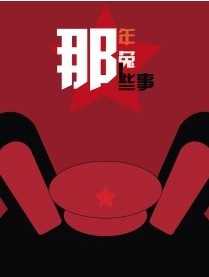Year Hare Affair
| Year Hare Affair | |
|---|---|
 |
Year Hare Affair (Chinese: 那年那兔那些事/那年那兔那些事儿 lit. The story of that rabbit happened at that year) is a Chinese webcomic by Lin Chao (Chinese: 林超).[1] The comic use animals as an allegory of nations and sovereign states to represent political and historical military events. It mostly provides reader a novel view of the development of modern Peoples Republic of China completely different from the official version from the government of the People's Republic of China. Instead of describing Peoples Republic of China always as a victim of conspiracy, military threatening, economic coercion and other malice of the Western World,[2] this web-comic tries to make the readers believe that the Peoples Republic of China has always been one of the most resourceful and wise governments ever since its creation, and has always been prevailing over foreign entities. This is the first series of manga which integrated the Japanese Anime culture[3] and the political propaganda in China. An anime television series adaptation of the series started airing on the Internet in March 2015. [4]
Main Character
Nations and Sovereign States
| Nations / Sovereign States | Appearance | The reasons and source of the Appearance |
|---|---|---|
| (Or | Hare | Hare represent the author's view that People's Republic of China is good at pretending to be harmless while it is in fact not.[5] |
| (Or | Baldhead | Based on the hair style of Chiang Kai-shek. Besides, baldhead and rabbit have similar pronunciation in Chinese, which represent the complexity of Cross-Strait relations. |
| | Russian Bear | Bear is a common national personification for Russia and USSR starting from Russian Empire. |
| | Russian Bear with a separate hair | To differentiate with USSR. |
| | Bald eagle | Bald eagle is the national bird of the United States of America.[6] |
| | Crane (bird) / Chicken | Crane is an important part of Japanese Culture.[7] The Chicken is used as an insult based on the similar appearance of Crane and Chicken and the traditional Chinese slang term Xiao riben. |
| | Gaoli bangzi with helmet | Bangzi is an ethnic slur used in China as a reference of Koreans.[8] To differentiate with North Korea, a US-style helmet is added to the appearance of South Korea. |
| | Gaoli bangzi with red start hat | Bangzi is an ethnic slur used in China as a reference of Koreans.[8] To differentiate with South Korea, a Communist-style red star hat is added to the appearance of North Korea. |
| Multiple Countries in Southeast Asia | Monkey | Monkey is commonly seen in Southeast Asia. It is also used as an ethnic slur in China for areas without modern development.[9] |
Included Events
- Second Sino-Japanese War
- Chinese Communist Revolution
- Korean War[11]
- Sino-Soviet Split
- United Nations General Assembly Resolution 2758
- Sino-Vietnamese War
- Scarborough Shoal standoff
- The Commission of Chinese aircraft carrier Liaoning[12]
- U.S. bombing of the Chinese embassy in Belgrade
- Hainan Island incident
- Cold War
- Vietnam War
- Battle of the Paracel Islands
- Uganda–Tanzania War
- 30 September Movement
- Sino-Soviet border conflict
- 1972 Nixon visit to China
- Soviet war in Afghanistan
- Cultural Revolution
- Iran–Iraq War
- Dissolution of the Soviet Union
- Tiananmen Square protests of 1989
- Gulf War
- Chinese economic reform
- Third Taiwan Strait Crisis
- The Signing of Joint Communiqué of the Government of Japan and the Government of the People's Republic of China
- Yinhe incident
- Kosovo War
- September 11 attacks
- War in Afghanistan (2001–present)
- Chen Shui-bian corruption charges
- Senkaku Islands dispute
- Indo-Pakistani wars and conflicts
Animation
On Mar 5, 2015, an animated TV series started airing on the Internet. [13] [4]
Views
Positive View
The comic express the modern history of China and its International relations in a fun way.[11] This comic is also the first series of manga in China which integrated the Japanese Anime culture[3] and political propaganda. It is also believed that the comic give lower class some kind of religious comfort,[14][15] which greatly relieve their pain and suffer given by their too ambitious government.
Criticism
An Anti Year Hare Affair Facebook community page was created, [16] where these people believe this comic is a signal of the rising of Chinese chauvinism and Sinocentrism, thus they give this comic a sarcastic name "Year Nazi Hare Affair". Comparing with Momotarō: Umi no Shinpei, one poster from Year Nazi Hare Affair Bar of Baidu Tieba also believes that the comic greatly brought about a boost of a mixed enthusiasm of Nazism and native-chauvinism in China.[17] Another comment on Zhihu[18] also criticized the comic for not providing an complete view of the development of China, and for understating the mistake made by the Chinese government in the Cultural Revolution and the Tiananmen Square protests of 1989.
Internet Phenomenon
Hare (Chinese: 我兔. lit. Our rabbit) is now used as a positive Internet Slang refer to People's Republic of China itself.[19]
External links
- (Chinese) Authors's Sina Weibo
- (Chinese) The original page where the author post the comic
References
- ↑ http://blog.sina.com.cn/s/blog_9bccd9b80101eydp.html
- ↑ http://www.uscc.gov/hearings/2009hearings/written_testimonies/09_04_30_wrts/09_04_30_brady_statement.php
- ↑ 3.0 3.1 http://tieba.baidu.com/p/2825195658
- ↑ 4.0 4.1 https://www.youtube.com/watch?v=X1XhkOr1J7U
- ↑ http://cardinalhehe.blogspot.ca/2013/11/tg286386.html
- ↑ Lawrence, E.A. (1990). "Symbol of a Nation: The Bald Eagle in American Culture". The Journal of American Culture 13 (1): 63–69
- ↑ ja:タンチョウ#.E6.97.A5.E6.9C.AC
- ↑ 8.0 8.1 http://www.nytimes.com/1993/04/11/weekinreview/the-world-china-and-north-korea-not-so-best-of-friends.html?pagewanted=all&src=pm
- ↑ http://bbs.tianya.cn/m/post-worldlook-1062478-1.shtml
- ↑ "那年那兔那些事儿". 那年那兔那些事儿吧. 2 February 2012. Retrieved 29 September 2014.
- ↑ 11.0 11.1 http://www.360doc.com/content/12/0529/14/7536781_214495575.shtml
- ↑ http://blog.sina.com.cn/s/blog_4ab5ef0a010184vt.html
- ↑ "动漫: 那年那兔那些事儿 TV版 2015". Youku. 5 March 2015. Retrieved 5 March 2015.
- ↑ http://tieba.baidu.com/f?kw=%C4%C7%C4%EA%C4%C7%CD%C3%C4%C7%D0%A9%CA%C2%B6%F9
- ↑ http://tieba.baidu.com/p/2624963755
- ↑ https://www.facebook.com/YearHareAffair
- ↑ http://tieba.baidu.com/p/2351032154
- ↑ http://www.zhihu.com/question/21964312
- ↑ https://www.google.com/webhp?sourceid=chrome-instant&ion=1&espv=2&ie=UTF-8#newwindow=1&q=%E6%88%91%E5%85%94+%E4%B8%AD%E5%9B%BD